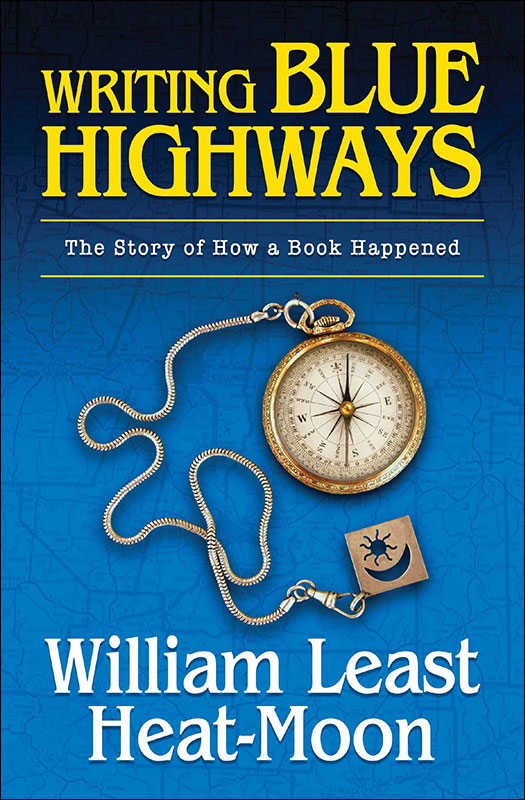
''There's no convergence between what I know and what I do.'' ''At times,'' an elderly man remarks, ''I find I miss my nimbleness.'' When Mr. ''Imageering's my job,'' a man says to Mr. People tend to say profound things to travelers in the attempt to persuade them to pause in their flight and listen. Moon had lost was teaching English, but in ''Blue Highways'' he goes on teaching, teaching us, as Proudhon put it, ''the fecundity of the unexpected.'' Nietzsche wrote that he always trusted thoughts that came while walking, and Mr. He was going to try to practice what Whitman called ''the profound lesson of reception.'' Like Whitman, he said, ''O public road, you express me better than I can express myself.'' He thought that ''just paying attention'' to the world around him might do him good. He headed for a psychological frontier, a better horizon. He felt rather worn himself and there was a knock in his heart. Moon, who is part American Indian, traveled in a 1975 half-ton Ford van with two worn rear tires and a knock in the water pump. He wrote a book about his travels in order to find out where he was trying to arrive at and called it ''Blue Highways,'' because on old maps the back roads were colored in blue. to Dime Box, Tex., Scratch Ankle, Ala., and Gnawbone, Ind.


When William Least Heat Moon lost his, he took to the road and went to Subtle, Neon, and Mouthcard, Ky.

SOME men, when they lose their jobs and their wives, take to drink and go to the dogs. An Atlan- tic Monthly Press Book: Little, Brown and Company.


 0 kommentar(er)
0 kommentar(er)
